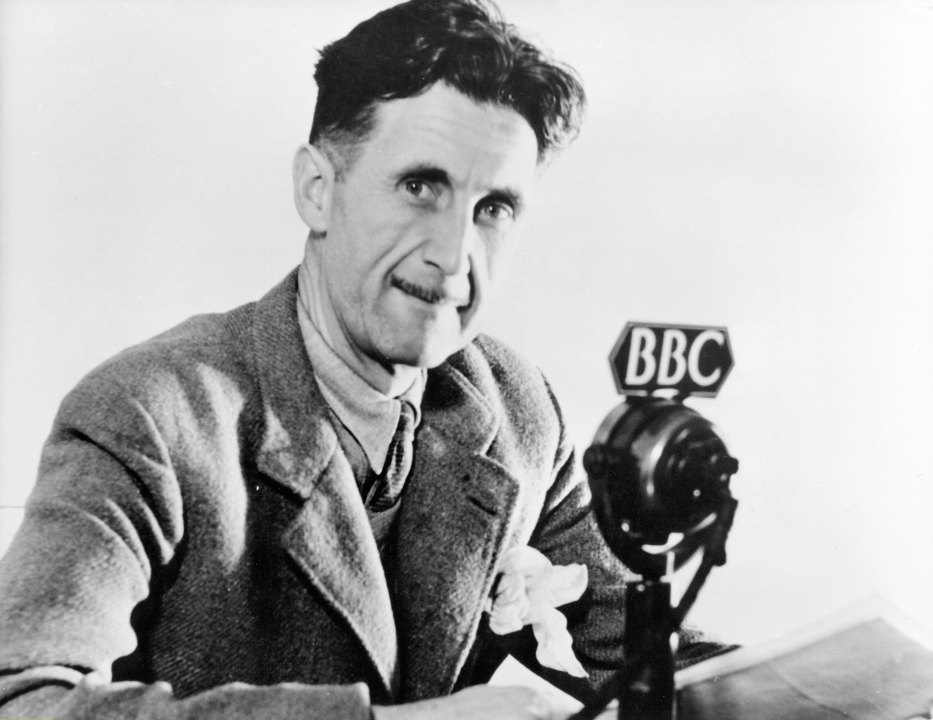George Orwell would have plenty to say about the language used in the assisted dying debate. As Orwell wrote in his essay ‘Politics and the English Language’: ‘When you make a stupid remark its stupidity will be obvious, even to yourself’. He continued, ‘political language … is designed to make lies sound truthful and murder respectable, and to give an appearance of solidity to pure wind’. Never has this been truer than in relation to the Terminally Ill Adults (End of Life) Bill, which is back for debate in parliament today.
Dignity in Dying, the organisation that campaigns in favour of assisted dying, would certainly trouble Orwell. In 2006, after just over 70 years, the Voluntary Euthanasia Society changed its name to Dignity in Dying. The name ‘Voluntary Euthanasia Society’ tells you what the society is about; ‘Dignity in Dying’ does not. This shows just how language can corrupt thought, something against which Orwell railed.
The debate on assisted dying is rife with troubling possibilities
‘Dignity in dying’ is the aim of any hospice worth its salt. Worse than this, the Voluntary Euthanasia Society appropriated, in one move, the notion of ‘dignity’, which is now associated with euthanasia and assisted suicide. Loss of dignity, the name suggests, is what you get if we don’t have a law that sanctions doctors to assist patients to kill themselves or to be killed.
Thanks to this rebranding, campaigners for assisted dying can now argue that, without this dignity-enhancing law, you will only have ‘suffering’. Different types of ‘dignity’ are out of the window. So, too, we need not debate the complexities around the idea that we must have ‘choice’. And along with the idea of ‘dignity’, will inevitably go the idea of ‘compassion’. The concepts that are under consideration in the assisted dying debate are deep and layered. But inspired by Newspeak – the simplified language of 1984 designed to prevent critical thinking – the aim is to simplify our thoughts through language.
Orwell’s Animal Farm – and the seven commandments in that book – serve as a useful companion in the debate around the Terminally Ill Adults Bill. These include ‘No animal shall drink alcohol’ and ‘No animal shall kill any other animal’. But perhaps the most relevant is the slogan that ‘All animals are equal’, which over the course of the story becomes corrupted to ‘all animals are equal, but some animals are more equal than others’.
The World Health Organisation’s definition of palliative care includes the idea that it ‘affirms life and regards dying as a normal process so that death should neither be hastened nor postponed’. Yet giving evidence to the public bill committee examining the Terminally Ill Adults Bill, the Australian palliative care physician, Dr Greg Mewett of Victoria, said that assisted dying is ‘part of palliative care’. On the same day, Professor Aneez Esmail, a retired professor but practising GP from Manchester, said he thought assisted dying would give terminally ill patients a ‘real choice’. So the idea that palliative care should not hasten death appears to have been altered.
Even ‘assisted dying’ is a euphemism. Euthanasia and assisted suicide are both unpleasant and embarrassing ideas. This is especially true when we think of the different types of euthanasia that exist (it can be voluntary, but also non-voluntary and involuntary). Anyone who is inclined to point out that ‘suicide’ means self-killing – and that this is what is arguably being proposed in the current Bill – is simply being mean in the eyes of the Bill’s supporters: it’s an unpleasant and embarrassing idea. ‘Assisted dying’ sounds so much nicer. It’s what they do in hospices.
But, of course, hospices too could encourage self-killing. The commandments implicit in the Hippocratic Oath, in the moral fabric of our culture, in the foundations of the NHS, and even in the Mental Capacity Act (‘nothing in this Act is to be taken to affect the law relating to murder or manslaughter or the operation of section 2 of the Suicide Act 1961’) could all be changed in the blink of an eye should the Terminally Ill Adults Bill become law. ‘No animal shall kill any other animal’, unless of course there is a good reason.
The debate on assisted dying is rife with troubling possibilities. There will be no expansion of the eligibility criteria for assisted suicide, proponents of the Bill insist. Except that, as is the case almost everywhere where assisted dying has been legalised, including in the US state of Oregon, the eligibility criteria have expanded. Studies also show that in those places where assisted dying is legal, the quality of palliative care mostly worsens.
One of Orwell’s most famous inventions, doublethink is just as applicable to the assisted dying debate as it was to 1984‘s totalitarian super-state Oceania. In January, Alex Greenwich, a member of Australia’s New South Wales Legislative Assembly who introduced their voluntary assisted dying laws, was invited to give evidence. He told Kim Leadbeater’s committee that ‘voluntary assisted dying in New South Wales is an important form of suicide prevention’ and that assisted suicide is a form of suicide prevention.
Tory MP Danny Kruger responded: ‘The fact is that unassisted suicide rises in states that have assisted suicide laws, because suicide is contagious’. Greenwich’s reply was pure and simple doublethink: ‘Voluntary assisted dying is a form of suicide prevention’.
Many of us who are against the proposed legislation have pointed to the concern that, in some places where assisted dying is legal, the reason people give for wanting to end their lives is because they feel like a burden. No one should feel like a burden. Nevertheless, Professor Meredith Blake, a law professor from the University of Western Australia, suggested to the committee in January that ‘people can feel that they are a burden, and that is part of their autonomous thinking’.
Two days before, Dr Jessica Kaan, medical director for End of Life Washington, had told the committee that feeling you are a burden could be ‘a valid reason among many’ for wishing to have an assisted suicide.
Instead of being something to be worried about, feeling like a burden becomes normalised. As in Orwell’s newspeak, the range of thought has been narrowed. It’s no longer necessary to feel shocked, for example, by almost 50 per cent of people, in Oregon at least, feeling they must end their lives because they sense they are a burden. This is merely a fact of life, neither good nor bad, neither shocking nor a failure of social care. The language of being a burden has successfully been simplified.
Whatever side Orwell would have come down on in the assisted suicide and euthanasia debate, we can be fairly sure that he would have things to say about the dangers of the language being used. Language can corrupt thought. We need to see clearly how language is being used for political purposes. The worry is that this sort of political use of language, such as calling assisted dying a ‘form of suicide prevention’, does not enhance thought but causes us to think strangely. In so doing, it corrupts our lives.








Comments